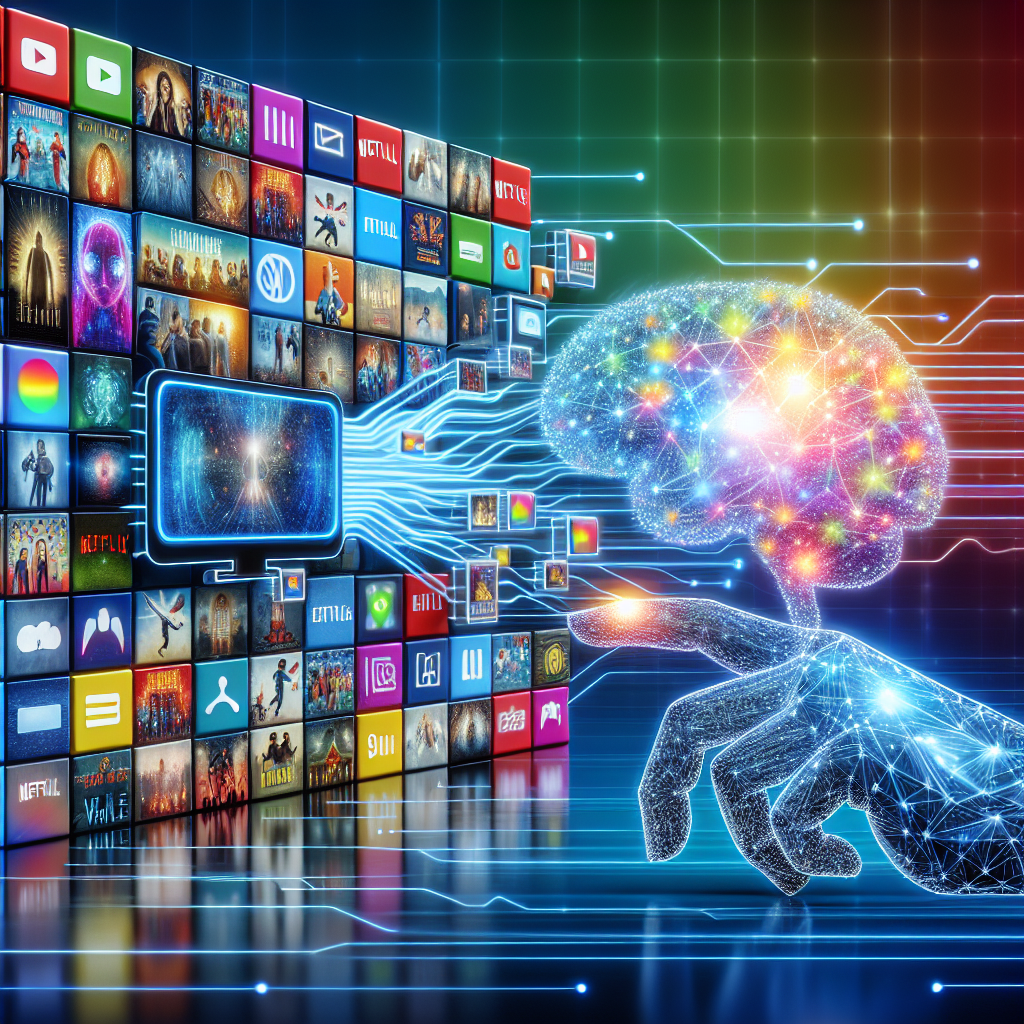The Impact of AI on Streaming Services: Personalizing Content Recommendations
In recent years, the entertainment industry has seen a significant shift towards on-demand streaming services. With the rise of platforms like Netflix, Hulu, and Amazon Prime Video, consumers now have access to a vast library of movies, TV shows, and original content at their fingertips. One of the key features that sets these streaming services apart from traditional cable or satellite TV is the use of artificial intelligence (AI) to personalize content recommendations for each user.
AI algorithms analyze a user’s viewing history, preferences, and behavior to suggest movies and TV shows that are likely to be of interest to them. This has revolutionized the way we consume media, making it easier than ever to discover new content tailored to our individual tastes. In this article, we will explore the impact of AI on streaming services and how it is shaping the future of entertainment.
Personalizing Content Recommendations
One of the biggest challenges for streaming services is keeping viewers engaged and satisfied with their content offerings. With such a vast selection of movies and TV shows available, it can be overwhelming for users to decide what to watch next. This is where AI comes in, by analyzing a user’s viewing habits and preferences to create personalized recommendations.
AI algorithms are able to identify patterns in a user’s viewing history, such as genres they prefer, actors they like, and even specific themes or storylines that pique their interest. By analyzing this data, streaming services can suggest content that is tailored to each individual user, making it more likely that they will find something they enjoy.
For example, if a user has watched several comedy movies in a row, the AI algorithm may recommend a new comedy series that has received high ratings from other users with similar preferences. Or if a user has shown a preference for documentaries about nature, the algorithm may suggest a new nature documentary that has just been added to the platform.
This level of personalization is a game-changer for streaming services, as it allows them to keep users engaged and coming back for more. By providing content recommendations that are tailored to each user’s tastes, streaming services can increase user satisfaction and retention, ultimately leading to higher revenue and growth.
Challenges and Opportunities
While the use of AI in streaming services has many benefits, it also presents challenges for both consumers and content creators. One of the main concerns is the potential for AI algorithms to create “filter bubbles” or echo chambers, where users are only exposed to content that reinforces their existing beliefs and preferences.
This can limit the diversity of content that users are exposed to, leading to a lack of exposure to new ideas and perspectives. To combat this, streaming services must strive to strike a balance between personalization and diversity, ensuring that users are exposed to a wide range of content that challenges and expands their interests.
Another challenge is the potential for AI algorithms to perpetuate stereotypes and biases in content recommendations. For example, if a user has watched a series of action movies starring male actors, the algorithm may be more likely to recommend similar content in the future, reinforcing gender stereotypes in media consumption.
To address this issue, streaming services must take steps to ensure that their AI algorithms are unbiased and inclusive in their recommendations. This may involve implementing diversity and inclusion guidelines for content creators, as well as regularly auditing and updating AI algorithms to remove any biases that may arise.
Despite these challenges, the use of AI in streaming services also presents opportunities for content creators to reach new audiences and expand their reach. By leveraging AI algorithms to personalize content recommendations, creators can connect with users who may not have discovered their content otherwise, leading to increased visibility and engagement.
Additionally, AI can help content creators better understand their audience’s preferences and behavior, allowing them to tailor their content to meet the needs and interests of their viewers. This can lead to higher viewer satisfaction and loyalty, ultimately benefiting both creators and streaming services in the long run.
FAQs
Q: How does AI personalize content recommendations on streaming services?
A: AI algorithms analyze a user’s viewing history, preferences, and behavior to suggest movies and TV shows that are likely to be of interest to them. By identifying patterns in a user’s viewing habits, such as genres they prefer, actors they like, and specific themes or storylines that pique their interest, streaming services can create personalized recommendations tailored to each individual user.
Q: What are the benefits of AI in streaming services?
A: The use of AI in streaming services has many benefits, including personalized content recommendations, increased user engagement and satisfaction, and the ability to reach new audiences. By leveraging AI algorithms to analyze user data and preferences, streaming services can provide a more personalized and enjoyable viewing experience for their users, leading to higher retention rates and revenue growth.
Q: What are the challenges of using AI in streaming services?
A: One of the main challenges of using AI in streaming services is the potential for algorithms to create “filter bubbles” or echo chambers, where users are only exposed to content that reinforces their existing beliefs and preferences. Additionally, AI algorithms may perpetuate stereotypes and biases in content recommendations, leading to a lack of diversity and inclusivity in media consumption.
Q: How can streaming services address bias and diversity issues in AI algorithms?
A: Streaming services can address bias and diversity issues in AI algorithms by implementing diversity and inclusion guidelines for content creators, as well as regularly auditing and updating algorithms to remove any biases that may arise. By ensuring that AI algorithms are unbiased and inclusive in their recommendations, streaming services can provide a more diverse and engaging viewing experience for their users.

